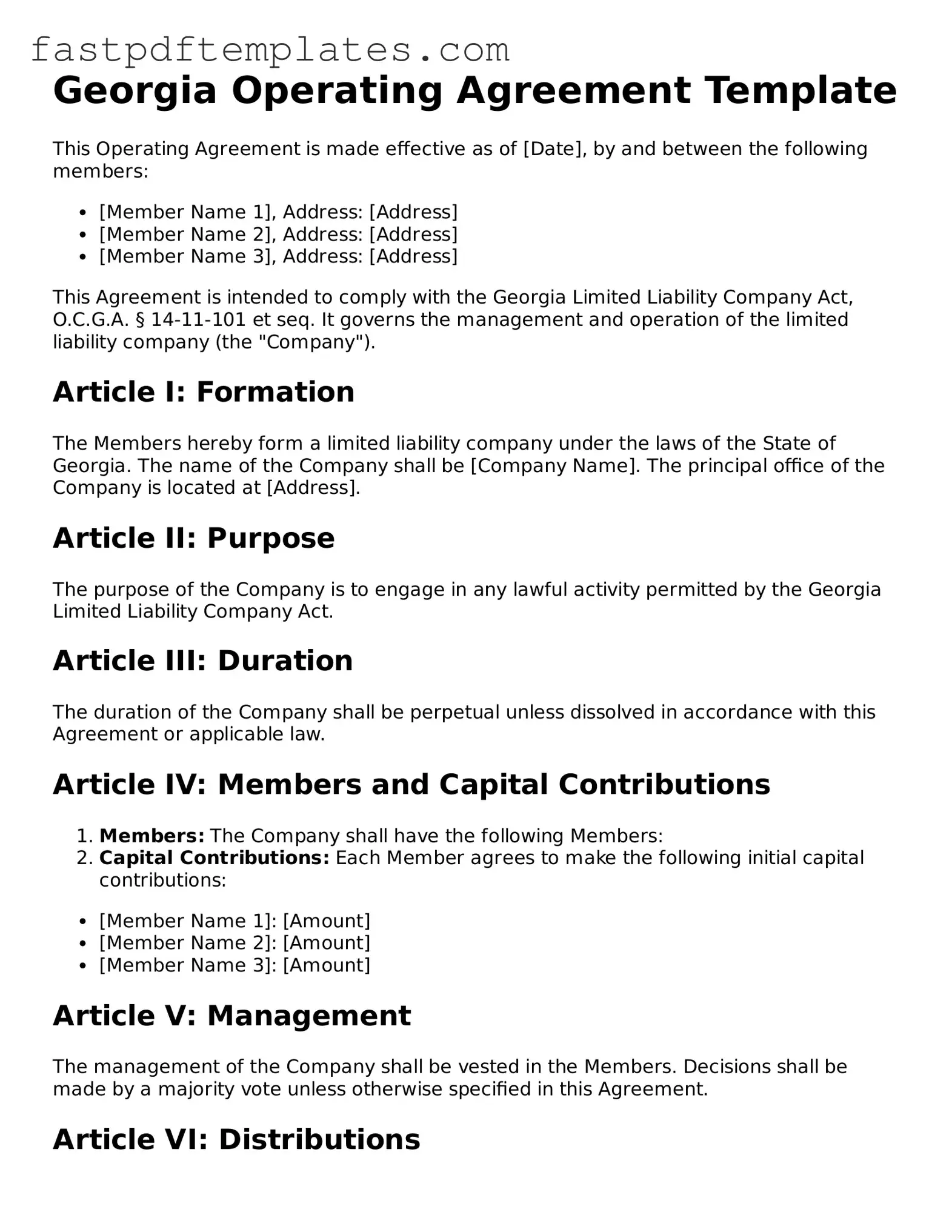Attorney-Approved Georgia Operating Agreement Document
The Georgia Operating Agreement is a crucial document that outlines the management structure and operational procedures of a limited liability company (LLC) in Georgia. This agreement serves as a roadmap for members, detailing their rights, responsibilities, and how decisions will be made. Understanding its importance can help ensure smooth operations and protect the interests of all parties involved.
Access Document

Attorney-Approved Georgia Operating Agreement Document
Access Document
Your form still needs completion
Complete your Operating Agreement online and download the final PDF.
Access Document
or
Click for PDF Form
